
Francis Beckwith, philosophy professor and pro-life apologist extraordinaire, answers a critique of the pro-life position in a guest column in wacotrib.com
Let us define 'pro-life' for you
In his Oct. 12 column, John Young claims to offer a critique of the pro-life position on abortion. Yet, he never once reveals to us the content of the pro-life position.
What then is the pro-life position? It is the view that the membership of the human community includes prenatal human beings, even if excluding them would benefit those who are more powerful than the prenatal and who believe that the prenatal’s destruction is in their interest.
It is the view that human beings have intrinsic dignity by nature that is not a consequence of their size, level of development, environment or dependency.
Young writes: “Surely someone devoted to preventing abortions would be just as devoted to preventing pregnancy.”
Pro-lifers, to be sure, would like to see fewer abortions. But it is not because we find abortion unattractive or repugnant, as if judging its wrongness were merely a matter of like or dislike.
Rather, the reason why we would like to see fewer abortions is because the unborn are full members of the human community and ought to be respected as such.
Once a human being comes into existence, the parents have an obligation to care for this vulnerable and defenseless family member. These parents may call on the rest of us to help and provide to them both material and spiritual resources, as many pro-life groups and individuals indeed do.
The question of access to birth control is an independent question, one over which pro-lifers themselves disagree.
But it is important to remember that if pro-lifers do support access to birth control, they distinguish between preventing a pregnancy and ending a life.
Planned Parenthood does not make such a distinction, for it describes the intrinsically valuable child of an unexpected pregnancy in dehumanizing terms — unwanted, unplanned, burdensome, etc.
These terms ought never be applied as criteria to assess the value of fellow human beings.
When we do apply such terms we diminish ourselves, for each of us was once an unborn child, tucked away in the shelter of a mother’s womb.
If we are intrinsically valuable beings now, we were intrinsically valuable beings then. We don’t become less intrinsically valuable because others think it is in their interest to destroy us.
Moreover, the differences between our prenatal and postnatal selves carry no moral weight: Size, level of development, environment and dependency do not impart to us moral status. We continue to be ourselves as we undergo these changes.
Young and Planned Parenthood seem to believe that absolute power over the consequences of extra-marital sex will make us a freer and more compassionate people.
I am far less sanguine. For it is a posture that treats sex and the children that arise from it as instruments of our wills rather than as gifts that ought to be treated with respect and dignity.
That is neither liberating nor loving.
---Francis J. Beckwith is associate professor of philosophy and church-state studies at Baylor University.
[Source]
Labels: abortion commentary, pro-life apologetics









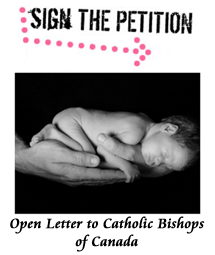




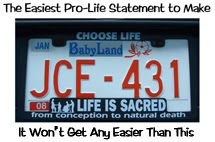
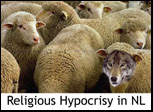





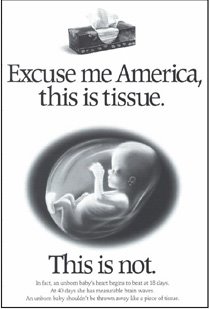

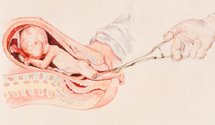



2 Comments:
Simply beautiful.
Beckwith is a powerful advocate for the unborn. Perhaps you are aware of his latest book entitled "Defending Life: A Moral and Legal Case Against Abortion Choice."
FYI, Scott Klusendorf of Life Training Institute described Beckwith's book like this:
"This is a book for careful thinkers. Though Frank believes he successfully refutes his critics (and I agree he does), he treats them charitably and takes their arguments seriously. He even thanks them up front (in the acknowledgments section) for helping him refine his own case. Among those thanked are David Boonin, Dean Stretton, Michael Tooley, and even Peter Singer. Classy.
"Beckwith’s primary purpose is to provide a thorough defense of the pro-life position and its grounding in the 'substance view' of human persons—a view he claims best explains human equality. He writes: “This book is, in a sense, then, not really a book about abortion, but rather, a book about human equality.” Frank contends that the larger metaphysical question—who are we?—should be answered by enlarging our definition of the human family to include the unborn. His secondary purpose is to examine the relationship between abortion and law, politics, and public discourse."
Post a Comment
<< Home